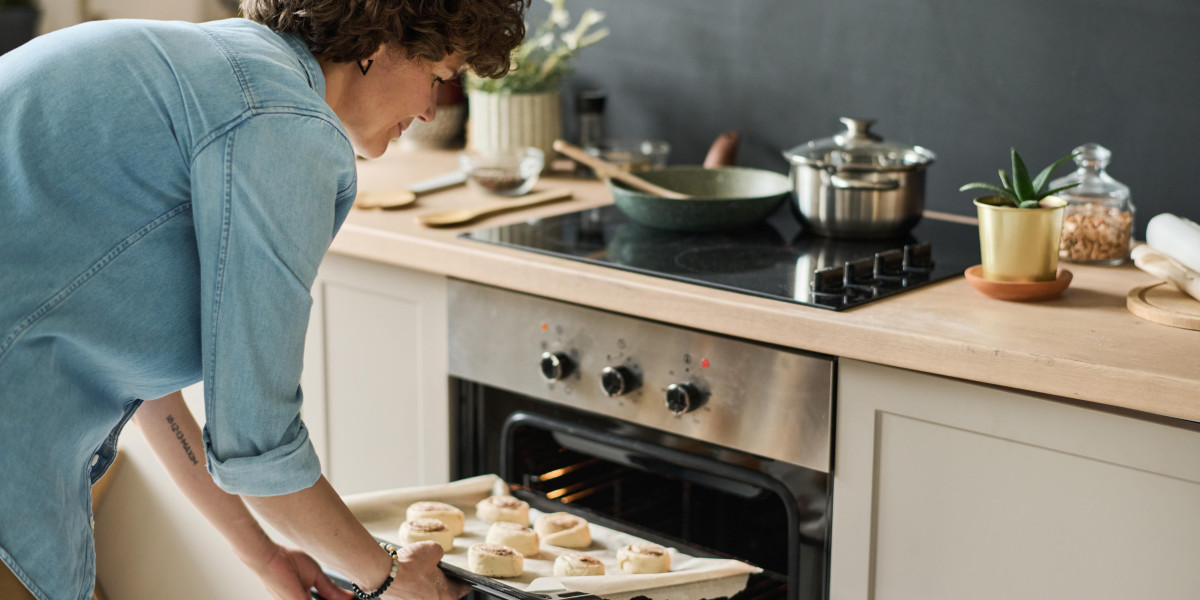
The Integrated Cooker: A Comprehensive Guide to Modern Cooking Solutions
The advancement of kitchen appliances has actually changed cooking and cooking methods, making meal preparation more efficient and satisfying. Among these developments, the integrated cooker stands apart as a flexible and space-saving addition to contemporary kitchens. This post looks into the numerous elements of integrated cookers, consisting of types, benefits, functions, and a contrast with traditional cooking methods.
What is an Integrated Cooker?
An integrated cooker is a compact cooking home appliance that integrates multiple cooking functions into one system. Typically built in cookers electric [check out here] into kitchen cabinets, these cookers are designed to save space while improving kitchen looks. They typically incorporate a variety of performances, such as baking, grilling, steaming, and even pressure cooking.
Secret Features of Integrated Cookers
- Multi-Functionality: Integrated cookers can perform different cooking jobs, removing the need for numerous appliances.
- Space-Saving Design: These cookers fit effortlessly into kitchen units, making them ideal for modern homes with minimal space.
- Advanced Technology: Many integrated cookers come geared up with wise innovation, such as programmable settings, touch-screen controls, and connectivity alternatives.
- Energy Efficiency: Built with modern-day products and style, they typically take in less energy compared to standard cooking techniques.
Types of Integrated Cookers
The market uses various types of integrated cookers, each with its unique set of features and functionalities. Here are the most typical types:
| Type | Description | Example Use |
|---|---|---|
| Built-in Ovens | Ovens that are fitted into wall systems or cabinets | Baking bread, roasting meats |
| Induction Hobs | Cooktops that utilize electromagnetic energy to heat pots and pans | Rapidly boiling water, sautéing |
| Steam Ovens | Appliances that cook food utilizing steam for much healthier results | Steaming vegetables, fish |
| Microwave Ovens | Integrated microwaves for quick heating and cooking | Reheating leftovers, making popcorn |
| Combination Ovens | A mix of standard and steam cooking technologies | Baking while making sure moisture retention |
Benefits of Using Integrated Cookers
Integrated cookers supply a host of benefits over traditional cooking tools. Below are some of the key advantages:
- Space Efficiency: Ideal for compact cooking areas, integrated cookers make use of vertical areas efficiently.
- Streamlined Cooking Process: With numerous functions offered, users can shift from one cooking technique to another with very little effort.
- Boosted Aesthetics: Many integrated cookers come in sleek designs that blend well with modern kitchen decor.
- Improved Cooking Control: Programmable features enable for precise cooking, guaranteeing better meal outcomes.
Integrated Cookers vs. Traditional Cooking Appliances
When thinking about meal preparation options, it is necessary to weigh the advantages of integrated cookers against standard cooking appliances. Below is a contrast chart:
| Feature | Integrated Cooker | Standard Appliances |
|---|---|---|
| Space Efficiency | High | Lower |
| Multi-Functionality | Yes | No (requires multiple appliances) |
| Energy Consumption | Often lower | Can be higher |
| Cooking Speed | Faster (particularly with induction) | Varies |
| Style | Modern and sleek | Varies commonly |
The integrated cooker is a forward-thinking device that satisfies the demands these days's hectic lifestyle. Its multiplicity of functions, space-saving style, and sleek visual appeals make it a beneficial financial investment for any modern-day kitchen.
For those wanting to conserve time, area, and effort in meal preparation, integrated cookers use an exceptional service that enhances the cooking experience while providing yummy, well-prepared meals.
Frequently Asked Questions (FAQs)
1. What is the typical rate of an integrated cooker?
The cost of integrated cookers can differ extensively, generally varying from ₤ 500 to ₤ 3,000 depending upon features, brand name, and size.
2. How much maintenance do integrated cookers need?
Maintenance often consists of routine cleansing of surfaces and looking for any software application updates if they include wise technology. It's advisable to follow the maker's standards.
3. Can I replace my existing oven with an integrated cooker?
Yes, integrated cookers can frequently replace conventional ovens, however it is important to talk to a professional to ensure compatibility with your kitchen layout.
4. Are integrated cookers challenging to set up?
Setup can be straightforward for those with DIY experience. Nevertheless, hiring a certified technician is suggested to guarantee correct setup.

5. Who benefits most from using an integrated cooker?
Households, time-pressed people, and those residing in compact apartments particularly gain from the multi-functionality and space-saving style of integrated cookers.
In this age of convenience and efficiency, integrated cookers are redefining how we approach food preparation. Whether you are a knowledgeable chef or a cooking newbie, incorporating this effective appliance into your kitchen can considerably enhance your cooking experience.







